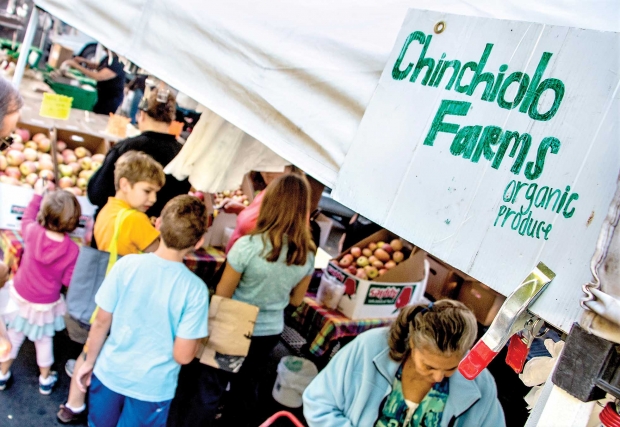
Steve Chinchiolo sells both organic and conventional apples at a farmers’ market in Modesto, California. TJ Mullinax/Good Fruit Grower
Today, they sell both organic and conventional fruit weekly in two local and five Bay Area farmers’ markets.
Chinchiolo starts the farmers’ market season with cherries and adds peaches, nectarines, pluots, and apples as fruit are harvested. He uses a small, refrigerated van as cold storage for fruit held for the farmers’ markets.
Success at a farmers’ market is all about getting into markets that have a large enough population base and crowds, Chinchiolo explained. His location in Ripon is about 80 miles from San Francisco, which has a much larger and more affluent population than the nearest major city of Modesto.
“Not all of the markets we go to in the Bay Area are high end. Some are working markets where the shopper does his or her weekly grocery buying. At other markets, there is more social interaction with the customer and deeper concern about where the fruit comes from and how it was grown. We also sell more organic fruit at these markets.”
Direct sales are small for Chinchiolo but nonetheless play a big role. “Our farmers’ market is a minor part of our crop sales, but it plays a major part in terms of the feedback that we get from our customers,” Chinchiolo said, adding that he uses consumer feedback to help shape planting decisions.
His organic fruit easily outsells his conventional, even though he charges 20 to 25 percent more for organic. “Sales at the markets are a good indicator of the demand for organic,” Chinchiolo said.






Leave A Comment